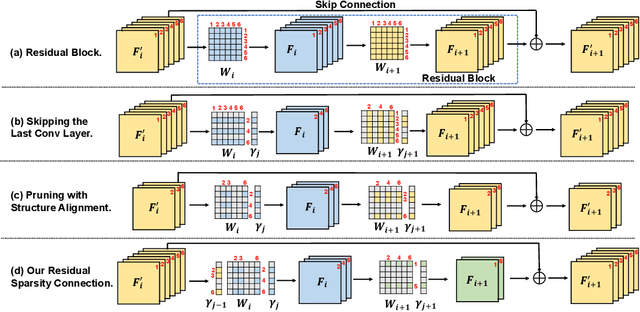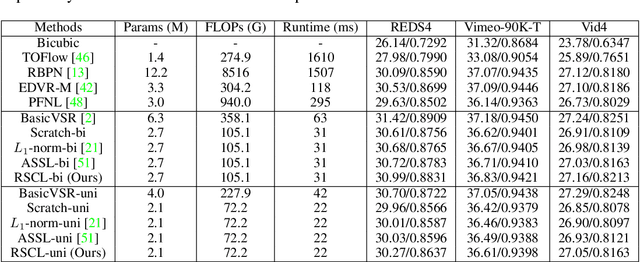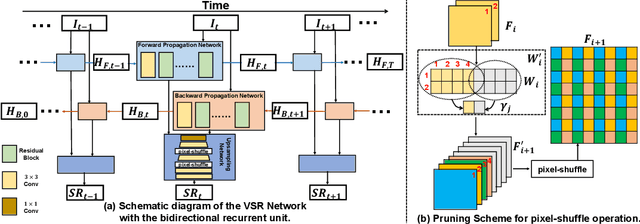Residual Sparsity Connection Learning for Efficient Video Super-Resolution
Paper and Code
Jun 15, 2022



Lighter and faster models are crucial for the deployment of video super-resolution (VSR) on resource-limited devices, e.g., smartphones and wearable devices. In this paper, we develop Residual Sparsity Connection Learning (RSCL), a structured pruning scheme, to reduce the redundancy of convolution kernels and obtain a compact VSR network with a minor performance drop. However, residual blocks require the pruned filter indices of skip and residual connections to be the same, which is tricky for pruning. Thus, to mitigate the pruning restrictions of residual blocks, we design a Residual Sparsity Connection (RSC) scheme by preserving the feature channels and only operating on the important channels. Moreover, for the pixel-shuffle operation, we design a special pruning scheme by grouping several filters as pruning units to guarantee the accuracy of feature channel-space conversion after pruning. In addition, we introduce Temporal Finetuning (TF) to reduce the pruning error amplification of hidden states with temporal propagation. Extensive experiments show that the proposed RSCL significantly outperforms recent methods quantitatively and qualitatively. Codes and models will be released.
 Add to Chrome
Add to Chrome Add to Firefox
Add to Firefox Add to Edge
Add to Edge